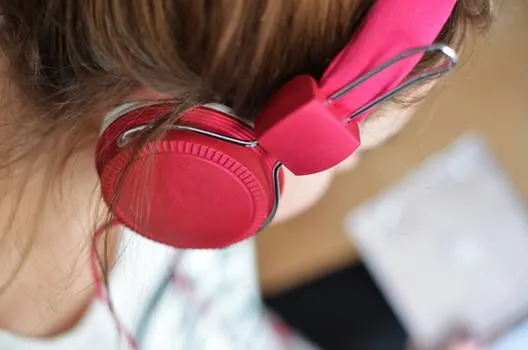There is no doubt that, in the twenty-first century, STEM education is vitally important. Our future is going to be driven by tech, and learning how to make and work with tech is what will help keep our kids employed. This does not mean, however, that the importance of STEM should be used to negate the importance of art, music, and the humanities. As Mr. Holland famously said, when told that long division was more important than music, “you can cut the arts as much as you want…Sooner or later, these kids won’t have anything to write about.”

Unfortunately, for many school districts, music and art are seen not as priorities but as disposable electives that can be taught when there’s room in the budget for them but are the first to get axed when a budget is cut. In some districts, schools are even forced to choose between funding music and art classes or having a school library! Madness!
This means that it is up to us, as parents and loved ones, to make sure that every generation of kids learns about music and how to appreciate it. And, yes, as any music student or teacher will tell you, there is more to music than what you can pick up by just listening to the radio.
Finding a Teacher
Even if your school district has a robust music program and your kids can take choir, band, orchestra, etc., it’s important to find a good teacher who will have the time to work one on one with your child. This is especially helpful for shy kids. Working one-on-one allows the teacher to build his or her curriculum around what works best for your child. And thanks to this wonderful tech age we live in, finding a teacher doesn’t have to involve asking around or making a dozen calls. There are sites like LessonRating.com that you can use as a resource to find teachers for your kids.
Commitment Matters
The last thing anybody wants is to force a kid who hates playing the piano to take piano lessons for his or her entire childhood. Still, don’t let your child quit his or her chosen instrument until he or she has spent at least six months trying to learn (yes, even if that instrument is drums). It takes time to learn an instrument and even if the first instrument isn’t a rousing love affair, the skills your children learn during those initial lessons will help them choose and approach a different instrument later.
Try to keep your kids in music lessons for at least a few years, even if you have to switch instruments a few times (thank goodness for instrument rentals, right?). Do some research, buy them a record player if you have to (check AudioRumble list as a starting point). Let them also listen to music, not just practice it. The work children put into learning about music theory and how to play instruments and sing has a lasting effect on your child’s brain and or her cognitive and emotional development.
Lasting Results
These lasting effects are not conjectured. Extensive research has been done on music and its effect on a person’s brain. In addition to better-developed motor skills, scientists have found that playing an instrument helps children develop “neurophysiological distinction (Time),” which is a fancy way of saying that they learn how to hear sounds they couldn’t hear before. This leads to improvement in literacy and reasoning, both of which are boons to a child’s academic achievements.
Playing an instrument also helps children build focus skills, helping them to be better at staying on task and concentrating while in school and, later in life, at work. They also pay better attention in school than children whose music education only includes listening. They are also more likely to go on to college–even children who live in districts with high drop-out rates.
Academic achievement isn’t the only benefit of learning how to play music. Studies also show that playing an instrument helps children develop better emotional and behavioral responses to stimuli (Washington Post). It particularly positively affects a child’s ability to deal with anxiety and control their emotions.
These benefits don’t stop when the lessons stop. They continue to affect and support children long after they’ve put away their guitars and flutes. The bottom line is this: children need music. Make sure they get it. And if you’re worried about the expense involved, many resources (Money Crashers) can help you foot that bill.
